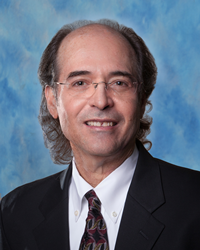
Dr. Jonathan Roberts is medical director of Clinical Research and Education, Interventional Cardiology for Memorial Healthcare System and program director of its Cardiology Fellowship Program
(Memorial Cardiac and Vascular Institute) enrolled its first class of physicians in 2021 and is participating in Harmony, Freedom, and TAVR UNLOAD trials, enabling it to offer patients a level of care that has traditionally only been available at major university centers.
HOLLYWOOD, Fla. (PRWEB)
August 30, 2022
Longtime healthcare industry observers may remember Memorial Healthcare System (MHS) as a collection of community hospitals that provided quality care to regional audiences. Its cardiac program exemplified the patient and family-centered approach the system and its specialists took when offering clinical services.
And while that’s still true at the core, it’s now just the foundation upon which an academic medical center has been built.
When Memorial received initial institutional accreditation to start a Graduate Medical Education (GME) program in 2015, it took a quantum leap forward as a healthcare provider. Becoming a teaching hospital system enabled it to not only draw from a deeper pool of physicians pursuing residency or fellowship training in what is now 15 specialties, but also positioned MHS to participate in leading-edge research trials that would provide patients access to treatment and care protocols not yet available elsewhere.
That value proposition is what the Memorial Cardiac and Vascular Institute is known for today. With a cardiovascular disease fellowship that enrolled its first class of physicians in 2021 and ongoing research that includes participation in Harmony, Freedom, and TAVR UNLOAD trials, to name just a few, it is able to offer patients from anywhere a level of care that has traditionally only been available at major university centers.
‘TAVR’ (Transcatheter Aortic Valve Replacement) is the most recent example of how Memorial’s ascension as an academic and research leader benefits patients with congestive heart failure and aortic valve stenosis. Currently, only patients with severe aortic valve stenosis qualify for TAVR, while those with moderate aortic stenosis and congestive heart failure receive medical therapy and are observed on guideline directed medical treatment until their condition worsens and a valve replacement meets current guidelines (i.e. severe aortic stenosis). The “unloading” of the left ventricle (the heart’s pumping chamber) by putting in a new aortic valve is currently only indicated in those with severe aortic stenosis.
The current randomized trial Memorial is participating in, called TAVR UNLOAD, will randomize patients with moderate, not severe, aortic stenosis to continued medical therapy in 50% versus TAVR in the other 50%. “Randomized trials have clearly shown that patients with severe aortic stenosis benefit from aortic valve replacement, with the procedure significantly prolonging their lives,” said Dr. Jonathan Roberts, medical director of Clinical Research and Education, Interventional Cardiology for Memorial Healthcare System and program director of its Cardiology Fellowship Program. “Will patients with only moderate aortic stenosis receive a benefit with aortic valve replacement above medical therapy? We currently don’t know the answer, but trials such as TAVR UNLOAD will shed light on whether performing the procedure in patients with only moderate aortic stenosis and heart failure symptoms will enable individuals to feel better, stay out of the hospital, and live longer as a result of earlier TAVR.”
In nearly all cases, patients with moderate aortic stenosis are not eligible for TAVR, but with the Memorial Cardiac and Vascular Institute involved in this important clinical trial, it is able to offer patients with moderate aortic stenosis an option not previously available to them.
Following the TAVR procedure, most patients go home the day following aortic valve replacement. This in stark contrast to when replacing an aortic valve required open-heart surgery that involved a weeklong hospital stay and six-week recovery period.
This potential advancement is made possible by research and clinical trials being conducted at academic centers that have the infrastructure, patient volume, and experienced clinicians Memorial does. One of the largest public healthcare systems in the U.S., it has a combined inpatient bed census of more than 1,000 at Memorial Regional Hospital and Memorial Hospital West and more than 160,000 emergency department visits at those hospitals annually. Fellowship training in its GME program enables doctors to experience all aspects of primary, tertiary, and quaternary cardiovascular care, ensuring graduates will be able to expertly diagnose, treat, and properly refer out almost all problems seen in cardiovascular medicine today.
This is also a significant benefit to the Memorial Cardiac and Vascular Institute’s patient population, who not only have access to leading-edge research and trials, but also highly-trained physicians with expertise in subspecialties that are part of Memorial Healthcare System during fellowship training and may elect to stay after the program is completed.
The Memorial Cardiac & Vascular Institute is a cardiovascular care leader, offering a wide array of services dedicated to the prevention, detection, and treatment of cardiovascular disease. Its multi-disciplinary specialists collaborate using sophisticated diagnostic equipment and facilities. Cardiovascular care outcomes are regularly reviewed by physician-review panels and nurses to ensure quality assurance that utilizes computerized data collection. For more information on total heart care, you can visit its website.
Share article on social media or email:

